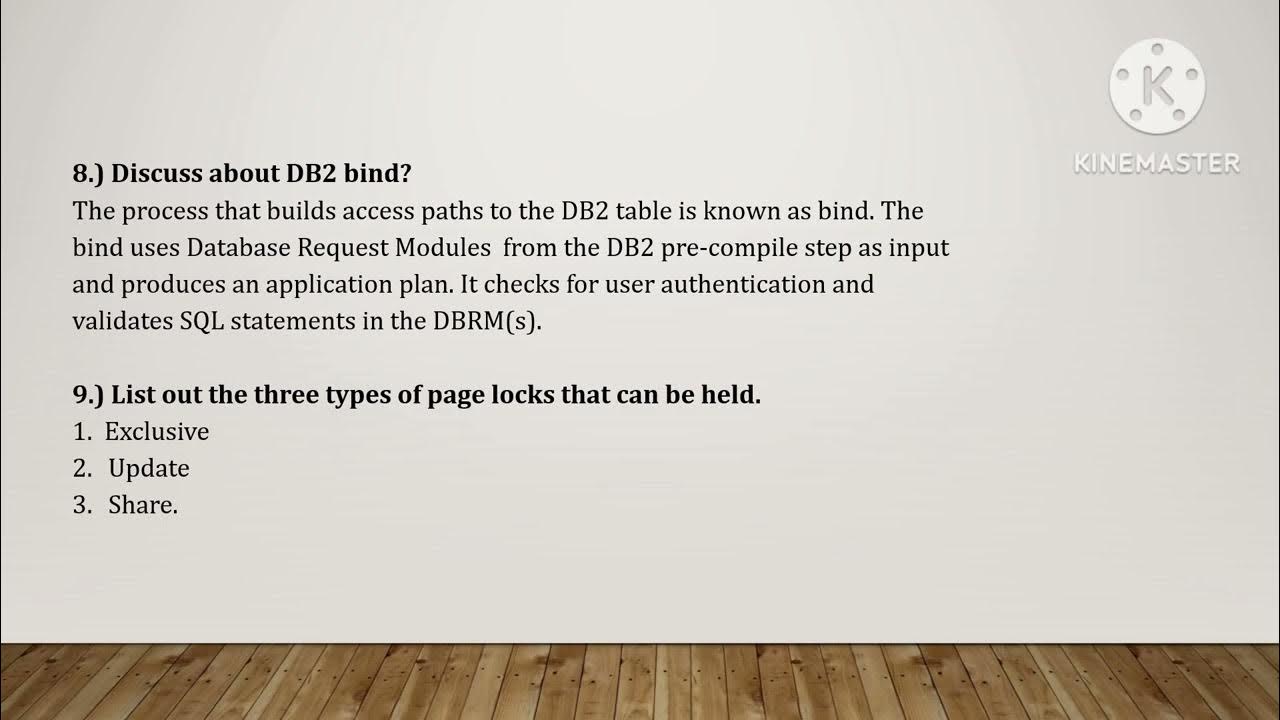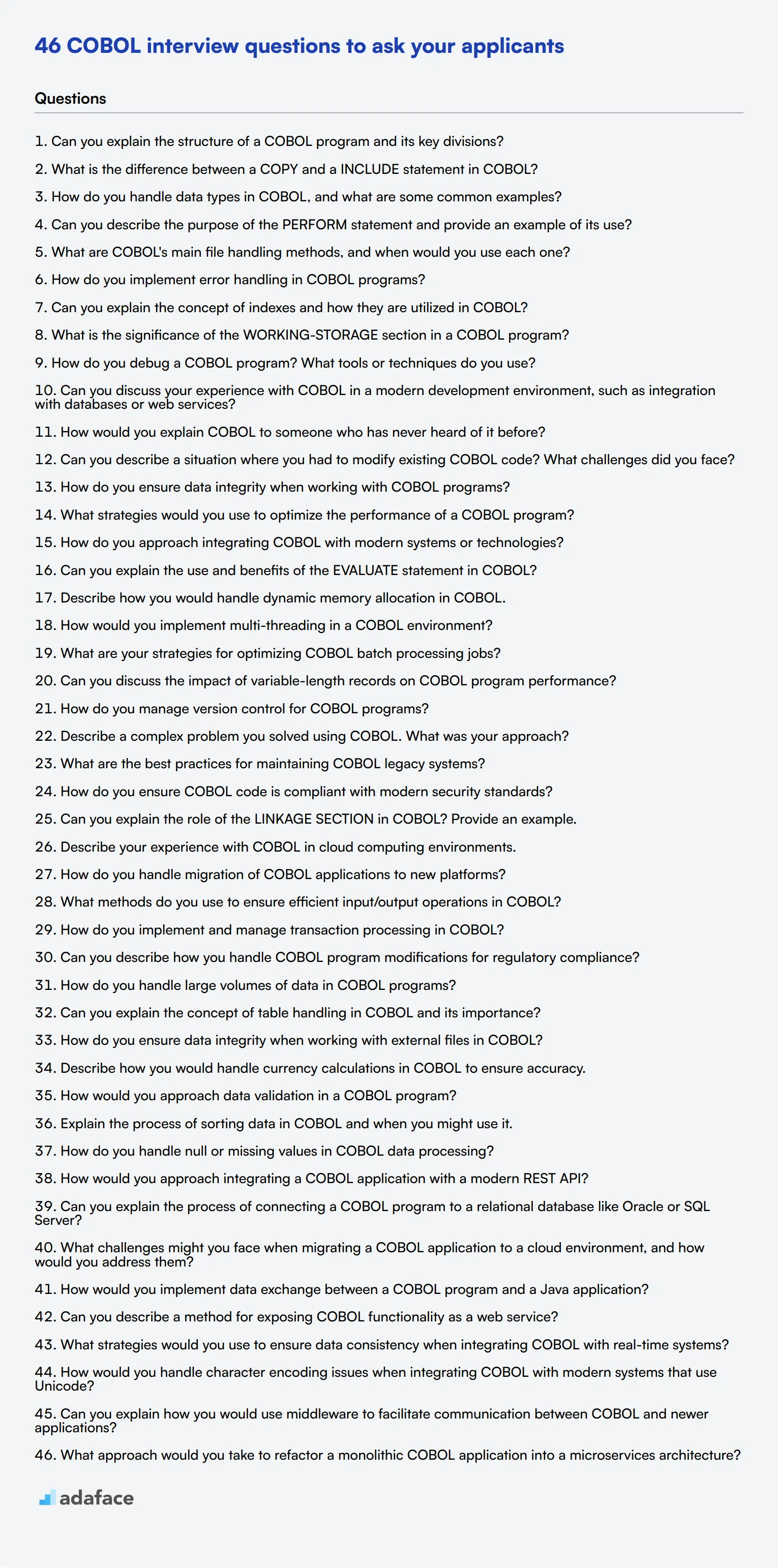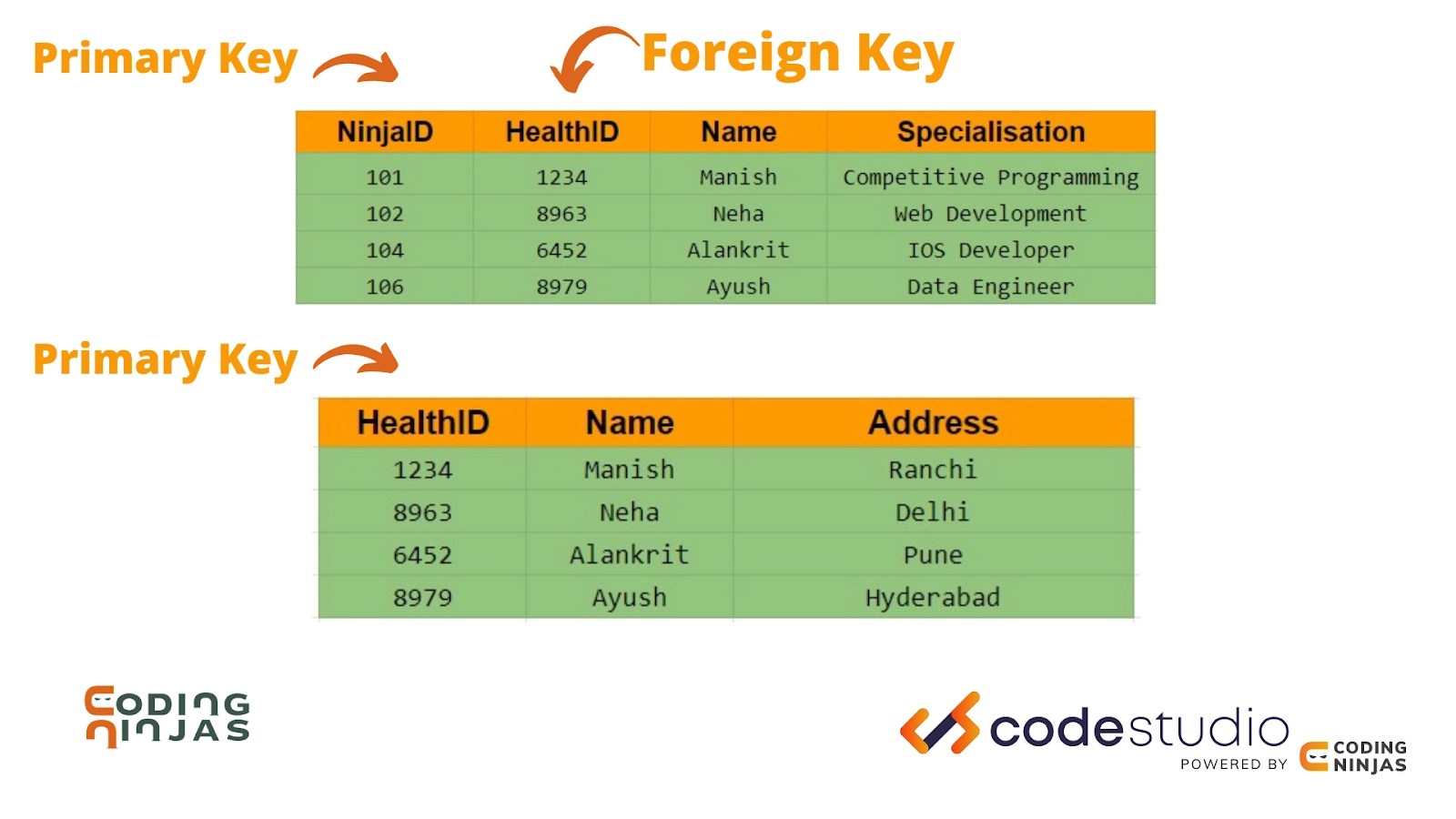Mainframe Cobol Interview Questions

The demand for COBOL programmers, particularly those skilled in mainframe environments, is experiencing a resurgence, defying predictions of obsolescence. This unexpected revival has led to a surge in demand for qualified professionals, creating a competitive landscape for both employers and job seekers. Consequently, mastering mainframe COBOL interview questions is crucial for those seeking to capitalize on this opportunity.
This article delves into the critical mainframe COBOL interview questions that aspiring developers need to prepare for, offering insights into the knowledge and skills employers seek. We will explore common technical inquiries, scenario-based problems, and behavioral questions that assess a candidate's suitability for a mainframe COBOL role. Furthermore, we'll examine the reasons behind this renewed demand and provide strategies for navigating the interview process successfully.
Technical Proficiency: The Core of the Interview
Technical questions form the bedrock of any mainframe COBOL interview. Interviewers aim to gauge a candidate’s understanding of fundamental concepts and their practical application.
Data Structures and File Handling
Expect questions on various data structures, including different types of COBOL files (sequential, indexed, relative) and their respective advantages and disadvantages. You should be prepared to discuss record layouts, data types, and file manipulation techniques, such as reading, writing, and updating records.
Understanding the nuances of VSAM (Virtual Storage Access Method) is also essential. Interviewers might ask about VSAM cluster structures, control interval splits, and techniques for optimizing VSAM performance.
COBOL Syntax and Programming Constructs
A thorough understanding of COBOL syntax is paramount. Interviewers may present code snippets with errors and ask you to identify and correct them.
Questions might cover topics like PROCEDURE DIVISION statements (IF, ELSE, PERFORM, CALL), data manipulation verbs (MOVE, COMPUTE, STRING, UNSTRING), and working with tables and arrays. Candidates should also be familiar with the use of subroutines and the different methods of passing parameters.
JCL (Job Control Language)
JCL proficiency is crucial for interacting with the mainframe environment. Interviewers often ask about writing JCL to allocate datasets, execute programs, and manage system resources.
Be prepared to explain the purpose of different JCL statements like JOB, EXEC, and DD. You might also be asked to troubleshoot common JCL errors.
Scenario-Based Questions: Applying Knowledge
Beyond theoretical knowledge, interviewers use scenario-based questions to assess a candidate's problem-solving abilities. These questions often involve real-world scenarios that COBOL programmers encounter daily.
For example, you might be asked how you would optimize a COBOL program that processes a large file or how you would debug a program that is producing incorrect results. The emphasis is on your thought process and your ability to apply your knowledge to find a solution.
Expect questions about handling data validation errors, implementing security measures, and ensuring data integrity. Clearly articulating your approach and considering various factors are crucial.
Behavioral Questions: Assessing Soft Skills
While technical expertise is vital, behavioral questions play a significant role in evaluating a candidate's soft skills and cultural fit. These questions aim to understand how you handle challenging situations, work in a team, and adapt to new environments.
Common behavioral questions include: "Describe a time you faced a challenging technical problem and how you solved it," or "Tell me about a time you had to work with a difficult team member." The STAR method (Situation, Task, Action, Result) is a useful framework for structuring your responses.
Interviewers are looking for candidates who demonstrate problem-solving skills, communication skills, teamwork, and a willingness to learn.
The Resurgence of COBOL: Understanding the Demand
The continued reliance on mainframe systems, particularly in industries like banking, insurance, and government, is a primary driver of the increased demand for COBOL programmers. These systems often run mission-critical applications that are too costly or risky to replace.
Furthermore, the aging workforce of COBOL programmers has created a skills gap. Many experienced programmers are retiring, leaving a void that needs to be filled by new talent.
Experts at IBM and other mainframe technology providers are actively promoting COBOL training programs to address this shortage. These initiatives are helping to attract new programmers to the field.
Preparing for Success: Tips for the Interview
Thorough preparation is key to acing a mainframe COBOL interview. Review fundamental COBOL concepts, practice coding exercises, and familiarize yourself with common JCL commands.
Research the company and the specific role you are applying for. This will allow you to tailor your responses to the interviewer's expectations.
Most importantly, be confident and articulate your skills and experience clearly. Demonstrating a genuine interest in mainframe technology and a willingness to learn will significantly improve your chances of success.
The demand for mainframe COBOL programmers is not merely a temporary blip. It represents a sustained need for professionals who can maintain and modernize critical systems. By mastering the key concepts and preparing for common interview questions, aspiring COBOL developers can position themselves for a rewarding and in-demand career.




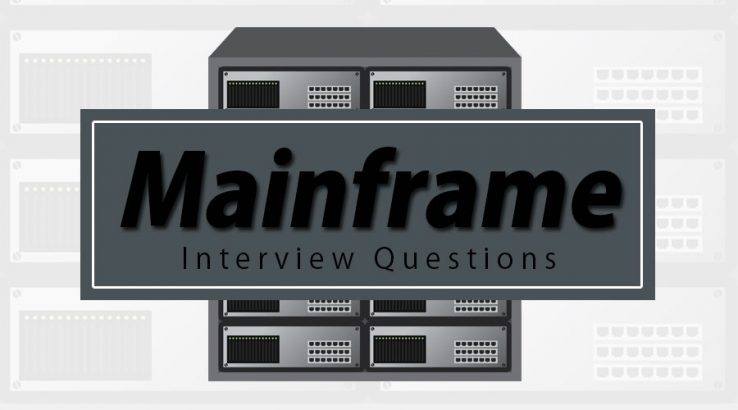

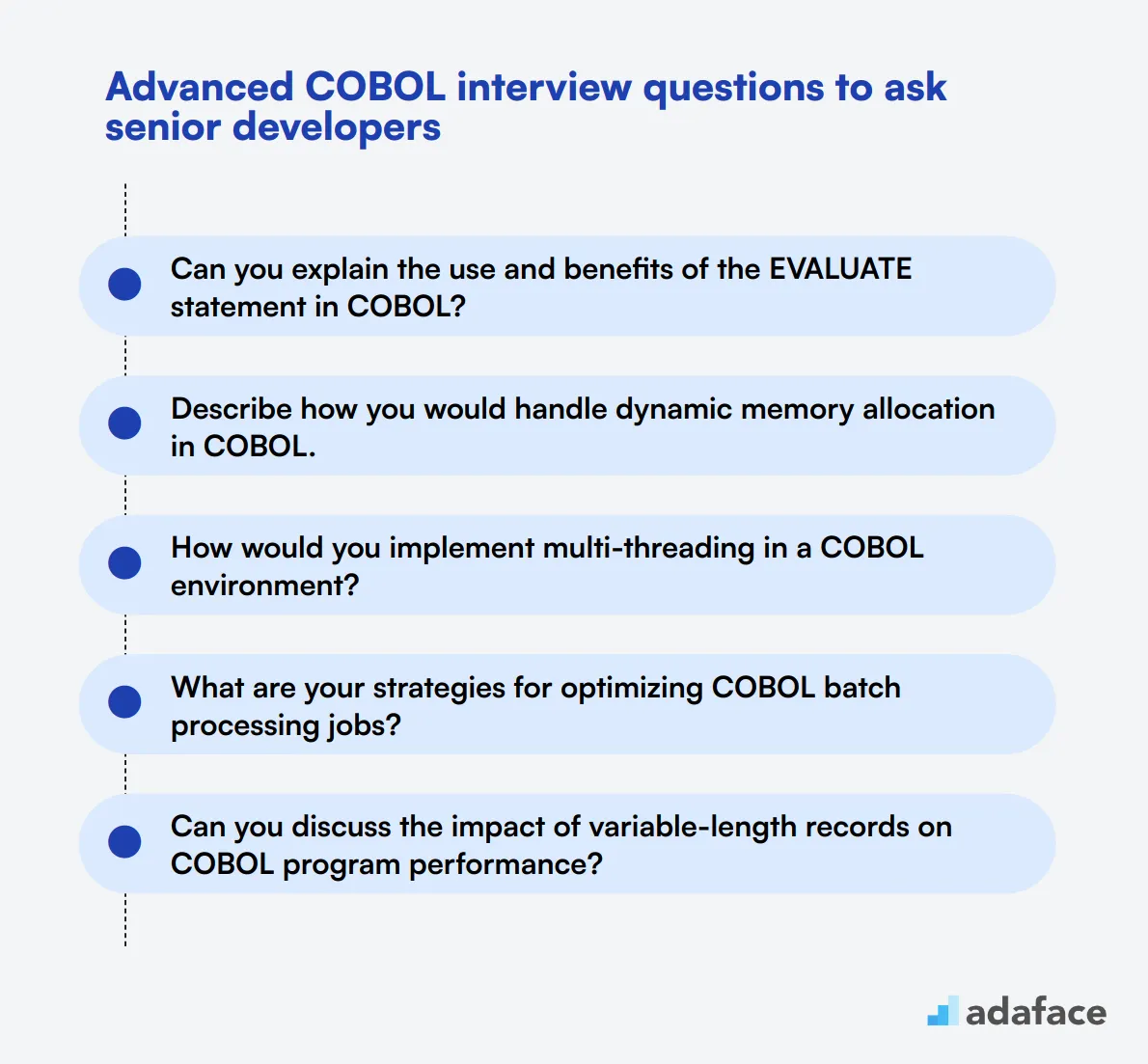
![Mainframe Cobol Interview Questions LATEST Mainframe Interview Questions [2020] & Answers | ACTE | Updated 2025](https://www.acte.in/wp-content/uploads/2020/06/Mainframe-Interview-Questions-and-Answers-ACTE-550x300.png)




